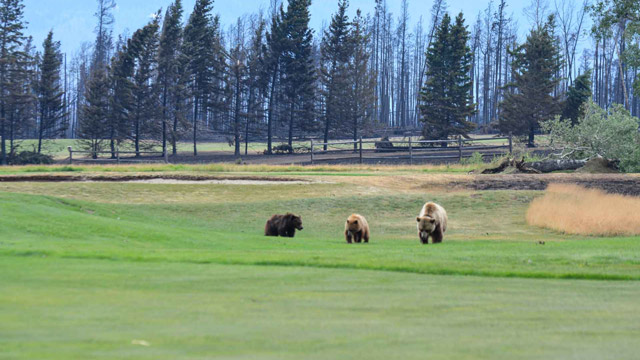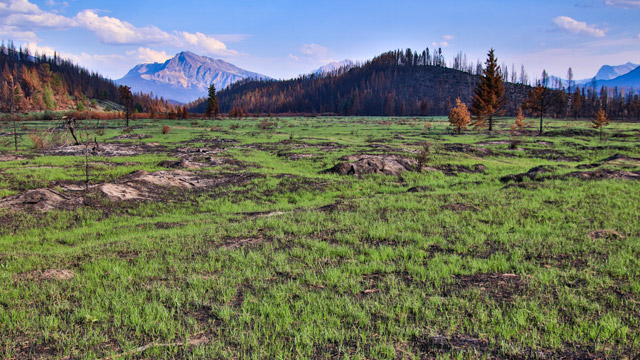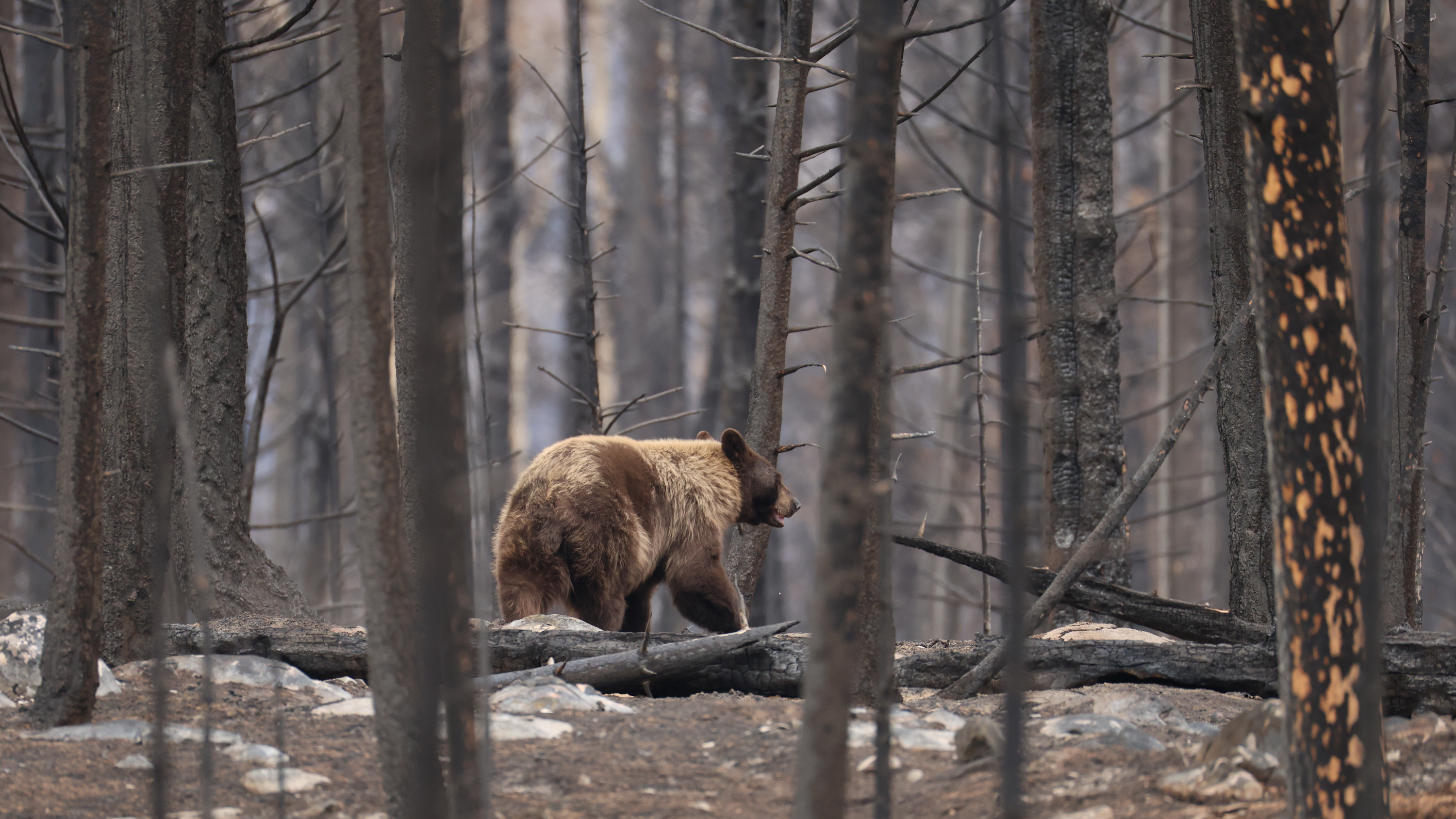
What happens to wildlife during a wildfire?
Jasper National Park
Most requested
On July 22, 2024, lightning ignited several wildfires in Jasper National Park. These fires are known as the Jasper Wildfire Complex.
Fire is part of the Rocky Mountain and boreal forest ecosystems. Many plant and animal species have evolved to live with fire. While some animals die in large wildfires, many survive.
 Grizzly bear 222, a frequent visitor in the area around Jasper Park Lodge, has a GPS collar tracking her movement. July 26, 2024
Grizzly bear 222, a frequent visitor in the area around Jasper Park Lodge, has a GPS collar tracking her movement. July 26, 2024
Animals know to flee in the face of fire. Birds that can fly are easily able to escape wildfire. Most young birds hatched in Jasper this spring and summer were flying by the end of July.
Larger mammals like bears, wolves, elk and moose can move from the fire’s path. Tracking data from the Sunwapta wolf pack in Jasper shows the wolves fled north from the Wabasso area, climbed towards Marmot Basin, and ran back down the valley behind the fire to return to Wabasso.
Other animals seek refuge in wetlands, lakes and rivers or burrow underground. GPS data from grizzly bear 222 and her two cubs shows they took refuge along the Athabasca River. Smaller mammals like ground squirrels and rabbits can burrow underground for protection.
A large wildfire drastically changes the ecosystem

New plant life can appear very quickly after a fire – green grass has already come up in burned areas like the Jasper Air Strip and along roadsides near town. Fireweed, aspen and shrub species like berries and roses are among the first to regrow.
Some species, like elk, deer and moose, thrive on these food sources and adapt well to post-fire habitat changes. Many birds also benefit from the new plants, small mammals that return, and insects living in dead trees. Food can be found in areas within the fire perimeter that were not burned or burned less intensely. Predators and other scavengers can find injured or dead animals to eat. Other animals may need to move to new areas to find food.
Many areas of Jasper National Park continue to provide good habitat for bears
In mid to late August, about one month from the onset of the fire, berries at higher elevations are reaching peak season and bears naturally move up to forage on these calorie-dense fruits. Bears also dig to eat seeds, roots and insects in the ground. Bears can also scavenge on animals injured or killed by fire. Grizzly bear 222 and her cubs recently moved to the south boundary area of Jasper National Park, which is unaffected by the recent wildfire.
While some bears will seek out less affected areas of the park, several are now spending a lot of time in the town of Jasper to take advantage of unnatural foods and avoid other bears. Some of them have become quite comfortable with fewer people around. They have been eating the non-native fruit they’ve found in previous years, and some have also been digging through damaged and destroyed properties for any food left behind.
Human food sources and garbage are harmful to bears
While you might think bears would benefit from any food they can find after the fire, human food sources are more harmful than helpful. It is much better for the bears' well-being and human safety for animals to find natural foods on their own, even in challenging post-fire conditions.

- Animals that learn to seek human food and garbage spend more time in areas where they may be injured or killed by vehicles, people or pets.
- Animals that access human food and garbage also often ingest items that may be toxic or make them sick.
- Animals that learn to seek food from people or garbage can become aggressive and may injure people.
- When animals learn to associate food and garbage with people, Parks Canada may need to destroy the animals to prevent people from being injured.
Wildlife specialists are monitoring conditions and wildlife in Jasper, responding to human-wildlife conflicts and hazing bears away from human food and garbage.
People can help keep bears alive and wild by putting all garbage in bear-proof garbage bins and reporting bears in town. Do not leave any garbage, recycling, or food outside at any time. It can take just minutes for a bear to be rewarded with unattended food.
Report all bears in town to Jasper Dispatch at 780-852-6155.
- Date modified :